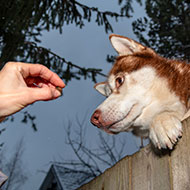Disappointment over government response to pet theft

Dog thefts have risen by a staggering 65 per cent since the start of lockdown.
The Chair of the Petitions Committee, Catherine McKinnell MP, has expressed disappointment at the government’s response to calls to make pet theft a specific criminal offence.
In June, the Petitions Committee wrote a letter to the government after more than 250,000 people signed a petition calling for the value of pets to be fully recognised in law, and for pet theft to be made a specific crime.
The letter to the Secretary of State for Justice called on ministers to ensure that sentencing options available to courts acted as a real deterrent for those who commit pet theft crimes. It also set out options for the government on how to achieve this, urging ministers to take urgent action to amend legislation.
In his response, the Rt Hon Robert Buckland QC MP said that he understood the “strength of feeling among campaigners regarding this issue”, but stated the government is satisfied that current laws cover the crime of pet theft. 'The Government, therefore, has no plans to introduce a new specific offence to deal with the theft of pets,' he wrote.
According to research by Dog Lost, dog thefts have risen by a staggering 65 per cent since the start of the coronavirus lockdown, compared with the same time last year. The figures come amid concerns raised by pet theft reform campaigners, whose research shows that the number of thefts is continuing to increase year-on-year.
Catherine McKinnell MP said it was 'incredibly disappointing' that the government have decided against taking action on pet theft.
“Pet theft is a truly callous crime. It strikes at the heart of families and the evidence is showing that every year the government fails to take action the problem is getting worse,” she said. “With the issue of pet theft now spiralling, it is incredibly disappointing that the government have decided against taking action and bringing forward tougher sentencing for this awful crime.”
Her words were echoed by Petitions Committee member, Tom Hunt MP, who stressed that current legislation 'doesn’t reflect where the public is on this issue'.
“Pet theft is a particularly cruel crime, robbing people of a cherished source of companionship and causing untold harm to the animals themselves,” he said. “In the absence of a specific offence for pet theft, pets are classed by the law as inanimate objects, with their theft usually resulting in no more than paltry £250 fines. This punishment simply doesn’t reflect the serious nature of the crime.”
Catherine McKinnel said the Committee will continue to raise this issue with ministers, and will ensure there is an opportunity to challenge their response by scheduling a Parliamentary debate.



 The Animal and Plant Health Agency (APHA) has updated its online reporting service for dead wild birds.
The Animal and Plant Health Agency (APHA) has updated its online reporting service for dead wild birds.